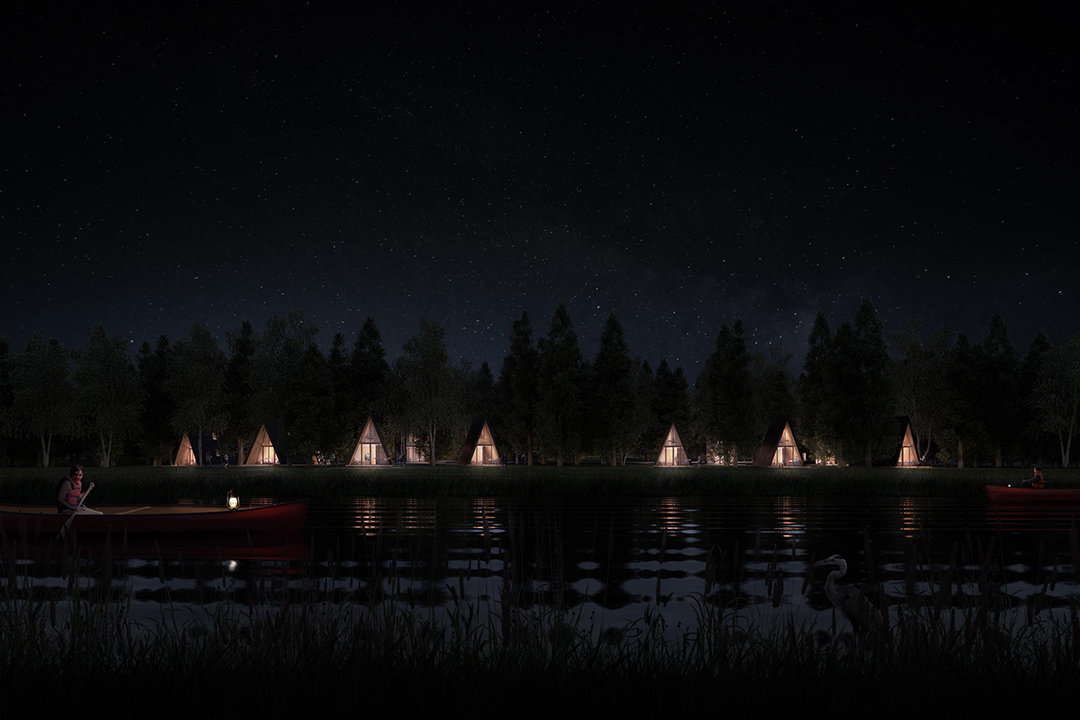
USask cabin donation addresses housing crisis, continues preparation for new Kenderdine Campus vision
The University of Saskatchewan (USask) has responded to an urgent request from an Indigenous community in central Saskatchewan in need of additional housing during the COVID-19 pandemic by providing 22 cabins to be relocated from the currently shuttered Emma Lake Kenderdine Campus site.
By University Communications“A few weeks ago, we were able to repurpose and work with Montreal Lake Cree Nation to move some of the buildings on-site to support their urgent need for additional housing because of the COVID-19 pandemic,” said Wade Epp, associate vice-president facilities at USask. “This quick move allowed the university to donate 22 cabins, which we had marked to remove anyway. We saw this as a great opportunity, and it signalled a move toward a potential new vision for the site.”
Montreal Lake Cree Nation, which has closed its borders to reduce the spread of COVID-19, inquired about obtaining the buildings in late March, with the USask Board of Governors approving the request on March 30.
“It was something that we weren’t expecting to happen, but really happy that it happened,” said Montreal Lake Chief Frank Roberts. “We have families identified who will be moving into their units, and they are really excited to be able to have an opportunity to call a place their own. Even though they are not very big cabins, it is still a home.”
The cabins moved exclude any buildings on the campus of historical interest to the university, and do not have permanent foundations, making them easier to move and retrofit to meet urgent basic housing needs in the Indigenous community, during the pandemic. The 22 cabins are structurally sound, but not currently winterized, with Montreal Lake aware of their condition and planning to renovate and upgrade the buildings as required for the upcoming months. Cabin removal began in May and site cleanup and restoration will continue through June.
Chief Roberts added that acquiring the cabins was “a blessing and will meet a need within their community.”
Since closing the Kenderdine Campus in 2012, members of the university have been working with various stakeholders to envision what ELKC could become, through one-on-one interviews, student surveys, focus groups and assessing potential interest from donors. A request for proposals (RFP) was also issued by the university in 2015. After extensive consultations and feasibility studies, a working group formed in 2019 began internal discussion around the future of the campus, along with key findings and recommendations on the next phase of the project.
In summer 2019, significant work was done on the shuttered campus to assess the existing structures and enhance the safety and security of the site while preparing for future uses. At that time, structures deemed beyond repair or not fitting in with potential future site uses were identified for removal over the next year. Communication was sent to the Emma Lake Beach Association in July 2019 to advise them of the upcoming planned changes and reclamation of the property.
With the plan to fully consider opportunities for a revitalized ELKC currently underway, the university remains firmly committed to engaging key stakeholders in its future. Plans for moving into the next phase of consultation in spring 2020 were put on hold due to COVID-19. When it is safe to do so, the university will continue to move forward with public consultation and the opportunity to develop a concept for reopening the campus as a place where community and university meet, gather, share and thrive.
For more information, please visit: https://executiveleadership.usask.ca/vp-university-relations1/communications.php

